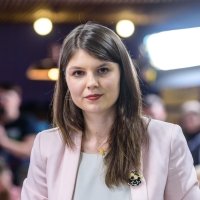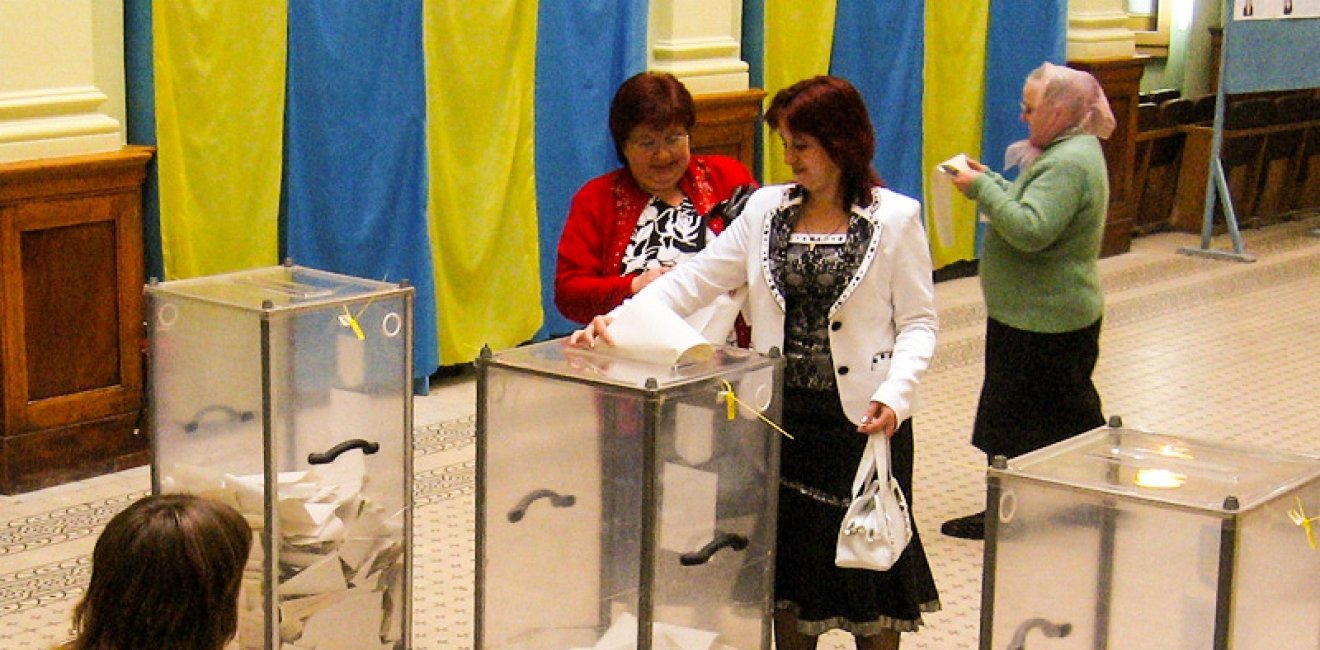
A blog of the Kennan Institute
BY KATERYNA ODARCHENKO
Ukrainian presidential and parliamentary elections are slated for 2019, and the campaigns should officially start in nine months. However, most potential candidates and political parties have already unofficially launched their campaigns. What does the political landscape look like on the eve of the elections?
The most striking observation is the atmosphere of public distrust confronting the early campaigners. Recent poll results show no single political leader or party enjoying relative majority support in Ukraine. Up to 30 percent of survey respondents do not plan to vote at all, and 60 percent of respondents do not support any of the potential candidates in both elections.
According to the most recent poll, of those who plan to vote, 13.8 percent support Yulia Tymoshenko, a veteran of Ukrainian politics and one of the opposition leaders. President Poroshenko would receive 8.4 percent of the vote. Other opposition figures, such as Anatolii Hrytsenko, Vadym Rabinovych, the Opposition Bloc’s Yurii Boyko, and Lviv mayor Andrii Sadovyi, would each receive 6–7 percent of the vote. The famous boxer and Kyiv’s mayor, Vitali Klischko, and ex-prime minister Arseniy Yatsenyuk each would get around 1 percent of voters’ support.
It is worth mentioning that electoral support for President Poroshenko, Mayor Sadovyi, and former prime minister Yatsenyuk is falling, while support for Yulia Tymoshenko, Anatolii Hrytsenko, and Yurii Boyko is growing slightly.
At the moment, the most optimistic forecast is for Yulia Tymoshenko and her Batkivshchyna party. Ms. Tymoshenko tries hard to be centrist in a country where the political field has moved far to the right. She is also consistent in criticizing neoliberal economic reforms and in supporting anticorruption policies and the Euro-Atlantic course, while keeping a low profile in the storms of corruption scandals. The main risk for Tymoshenko is that she has had a long life in Ukrainian politics: voters seem to have tired of her.
President Poroshenko is in a difficult situation. His electoral support might improve if his previous electoral promises are at least partially fulfilled. The most important promise he made was to restore peace in Ukraine and reunite the occupied territories of Donbas and Crimea with the rest of Ukraine. For many reasons, the president has not been able to deliver on this promise. Fulfillment of his second promise, to improve the living standards of the population, also seems not within reach—at least that is how Ukrainians assess it in the surveys mentioned above. But the president has definitely delivered on a third promise: Ukraine is indeed more integrated with Europe and the West than it was four years ago. Nonetheless, if the president is unable to change voters’ opinions about his achievements, his chances for an electoral victory will be close to zero.
Among the new faces in Ukrainian politics, one in particular stands out—Svyatoslav Vakarchuk. A popular front man of the rock group Okean Elzy, he has been discussed in the Ukrainian media as a possible presidential candidate. Some spice is added to his résumé through his alleged connection to George Soros. Even though the singer has not yet confirmed his candidacy, he is at the top of surveys that include his name in a list of possible presidential candidates. Working against his success at the polls is that Vakarchuk's voters do not actively participate in elections and are traditionally apolitical. Also, there are doubts he would be able to put together a good team for governing should he win.
There are good reasons, then, for voters’ disinterest in the upcoming elections. The main reasons for the low support among voters for the political establishment are the slow growth of the economy, which has brought prolonged hardships during a socioeconomic crisis; the lack of any visible impact of reforms with respect to improving living conditions; and the ongoing war with Russia-backed separatists.
The decisive problem weighing on the upcoming electoral cycle, however, is a loss of confidence in the government and its institutions. Surveys have shown a total distrust of everything: of the media, the public institutions, politicians. The political and economic elite have not done much to overcome the current distrust of voters.
The problem of political disaffection is particularly severe among youth, considered to be the age group most in favor of EU membership. Only one-third of young people surveyed intend to vote in the next election. It is crucial for the government and political parties to take measures to win the confidence of voters, especially youth. But only one-fifth of people ages 18–35 years believe Ukraine offers them a good future. This adds further to the problem of middle-aged cohorts having an interest in moving to another country.
Another problem weighing on the elections is nostalgia. According to a survey conducted by the Rating Sociological Group, one-third (35 percent) of respondents regret the collapse of the Soviet Union in 1991. This feeling is almost endemic among less educated, older respondents with lower income levels, who are more inclined to support more conservative political parties that do not subscribe to Euro-Atlantic integration. However, they also tend to participate in elections more actively than younger people. Such behavioral differences among the electorate fuel uncertainty in advance of the elections proper.
Among an electorate exhibiting such widely different proclivities, the political parties cannot function as social elevators: they do not help new groups get involved in politics. The parties also ignore creating wider networks of supporters, with party offices in several cities, and infrequently work on developing effective party programs. So the voters are left with an outdated collection of candidates and stagnant party organizations. This does not particularly inspire citizens to vote.
Looking ahead, the Ukrainian presidential elections will almost certainly go into two rounds, with Ms. Tymoshenko the most likely candidate. President Poroshenko, Mr, Gritsenko, and Mr. Boyko will have to work hard for any one of them to meet Ms. Tymoshenko in the second round.
Author


Kennan Institute
After more than 50 years as a vital part of the Wilson Center legacy, the Kennan Institute has become an independent think tank. You can find the current website for the Kennan Institute at kennaninstitute.org. Please look for future announcements about partnership activities between the Wilson Center and the Kennan Institute at Wilson Center Press Room. The Kennan Institute is the premier US center for advanced research on Eurasia and the oldest and largest regional program at the Woodrow Wilson International Center for Scholars. The Kennan Institute is committed to improving American understanding of Russia, Ukraine, Central Asia, the South Caucasus, and the surrounding region through research and exchange. Read more

Explore More in Focus Ukraine
Browse Focus Ukraine
Talking to the Dead to Heal the Living

Ukrainian Issue in Polish Elections


